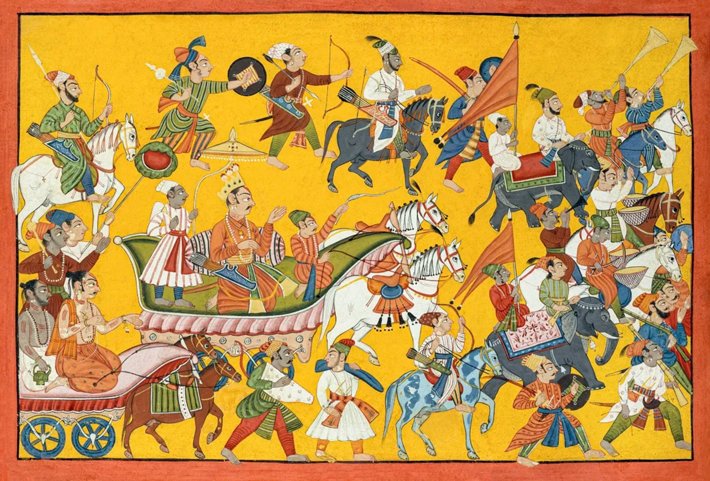In a remarkable display of eclecticism and religious diversity, two Muslim students at an Islamic college in India are among the five winners of an online quiz contest based on the Hindu Ramayana epic.

The duo, Mohammed Jabir P.K. and Mohammed Basith M., are students at the KKSM Islamic and Arts College in the town of Valanchery in the southern state of Kerala.
Neither of the two winners was aware of the other’s participation in the quiz, which was held from July 23 to July 25. When the winners’ list was announced, they were surprised to find their names on it and were inundated with congratulatory messages from family, friends, teachers and their college principal.
Both were well prepared for the quiz, having studied in their strikingly diverse college curriculum about the Ramayana, which, along with the Mahabharata, is one of the two great epic poems of the Hindu tradition. It tells the story of a divine Hindu prince, Rama, through about 25,000 couplets divided into seven books dating back at least to 300 B.C.
“Our syllabus has teachings of all major religions, particularly Hinduism, Buddhism, Jainism and Sikhism as Indian religions,” the two winners were quoted as saying by The Hindu, one of India’s major national dailies. “We also learn religions such as Christianity, Judaism and Daoism.”
The quiz was conducted by DC Books, a major publishing company and chain of bookstores, as part of a month-long celebration of the Ramayana that ends August 16 and during which many Hindu households read the entire sacred poem bit by bit every day.
Their success in the quiz has inspired Jasbir and Basith to dig deeper into the Ramayana. And not just that—they recommend all their compatriots do the same.
“All Indians must read the Ramayana and the Mahabharata, the two epics of our land,” said Jasbir. “They are part of our culture.”
A student of comparative religion whose scholarship motivated him to know about the Ramayana, Jabir believes all religions promote peace and the well-being of people. “Look at the Ramayana,” he said. “It tells the story of Rama, the embodiment of virtue. It teaches forbearance, patience, peace, fraternal love, and so many things.”
Basith first learned about the Ramayana from comic books in his childhood. “But when I reached this campus,” he said, referring to his college, “I was excited to find books of all religions.”
Both students are grateful to their Islamic college’s curriculum and vast campus library for exposing them to the texts of other faiths. “We must not be blind to any source of knowledge, whether it is a stream of faith or not,” Jasbir said. “Reading will help us enhance our respect for other faiths.”
_______________
From its beginnings, the Church of Scientology has recognized that freedom of religion is a fundamental human right. In a world where conflicts are often traceable to intolerance of others’ religious beliefs and practices, the Church has, for more than 50 years, made the preservation of religious liberty an overriding concern.
The Church publishes this blog to help create a better understanding of the freedom of religion and belief and provide news on religious freedom and issues affecting this freedom around the world.
The Founder of the Scientology religion is L. Ron Hubbard and Mr. David Miscavige is the religion’s ecclesiastical leader.
For more information visit the Scientology website or Scientology Network.


